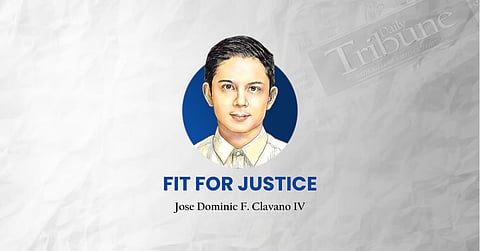
- NEWS
- the EDIT
- COMMENTARY
- BUSINESS
- LIFE
- SHOW
- ACTION
- GLOBAL GOALS
- SNAPS
- DYARYO TIRADA
- MORE

Justice Secretary Jesus Crispin “Boying” Remulla has seen his share of political storms, but the barrage of cases filed against him in recent weeks is different.
They come not as ordinary complaints but as strategic moves, timed precisely as his application for Ombudsman undergoes scrutiny. The pattern raises a larger question: not just who is afraid of Ombudsman Boying Remulla, but whether our institutions will allow themselves to be used in this game.
On 11 September, the Ombudsman dismissed a complaint earlier lodged by Sen. Imee Marcos over the arrest of former president Rodrigo Duterte. Hours later — almost too swiftly to be credible — a motion for reconsideration appeared. Such pleadings usually take time; this one looked pre-written, waiting to be filed no matter the reasoning behind the dismissal.
Days later, Davao City Mayor Sebastian “Baste” Duterte filed a nearly identical case, this time adding kidnapping to the list of charges. The Supreme Court has been clear that such re-dressing of old complaints is forum shopping, a practice that clogs the system and abuses the judicial process.
Then came another complaint, from lawyer Ferdinand Topacio, tied to arrests made in Indonesia in 2024. But why wait more than a year before raising it? Why now, precisely when Remulla’s Ombudsman clearance is before the Judicial and Bar Council (JBC)? The timing cannot be ignored.
These cases matter not because they are likely to prosper, but because of how the JBC’s rules work. An Ombudsman applicant must secure a clearance showing no pending cases. Even one unresolved complaint is enough to block a candidacy from moving forward. In principle, this rule is sound — it prevents applicants with serious baggage from slipping through. But in practice, as we now see, it is vulnerable to abuse. If nuisance cases can be weaponized to stall an application, then the rule ceases to serve justice. It becomes a tool for exclusion.
Here lies the burden now placed on the JBC. The Council cannot treat these events as mere paperwork. To follow the rules mechanically, without recognizing their abuse, would reward political maneuvering and punish merit. It would set a precedent where any serious candidate can be sidelined by timing and harassment, rather than by genuine accountability.
The JBC must rise above the spectacle. Its role is not only to enforce the rules but to discern when those rules are twisted for ulterior ends. Wisdom, not mere procedure, is what the moment demands. Otherwise, the Ombudsman’s office — and the reform it promises — may be lost not in law, but in fear.
